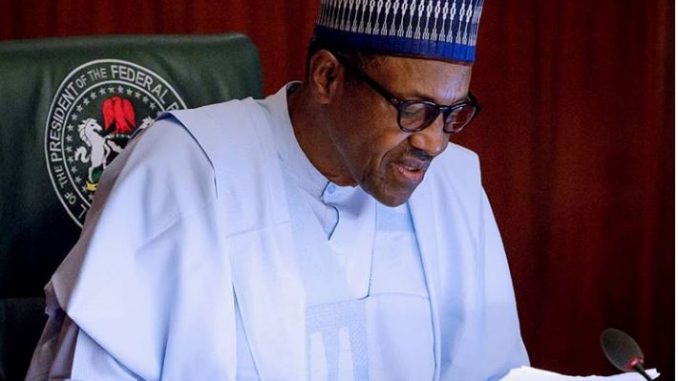
President Muhammadu Buhari says he rejected the electoral amendment bill because it could affect the 2019 elections.
The president said this in a letter sent to the national assembly.
In the letter obtained by TheCable, the president said signing the bill into law could “create uncertainty and confusion” during the forthcoming elections.
“Pursuant to section 58 (4) of constitution of the Federal Republic of Nigeria 1999 (as amended), I hereby convey to the House of Representatives, my decision on 6th December 201 to decline Presidential Accent to the Electoral (Amendment) Bill , 2018 recently passed by the National Assembly,” he wrote.
“I am declining assent to the Bill principally because I am concerned that passing a new electoral bill this far into the electoral process for the 2019 general election which commenced under the 2015 Electoral Act, could create some uncertainty about the applicable legislation to govern the process.
“Any real or apparent change to the rules this close to the election may provide an opportunity for disruption and confusion in respect of which law governs the electoral process.”
Buhari appealed to the lawmakers to revise some clauses in the bill, expressing optimism that it would take effect after the elections.
“This leads me to believe that it is in the best interest of the country and our democracy for the national assembly to specifically state in the Bill, that the Electoral Act will come into effect and be applicable to elections commencing after the 2019 General Election,” he said.
“It is also important for the following drafting amendments to be made to the Bill: section 5 of the Bill, amending section 18 of the Principal Act should indicate the subsection to which the substitution of the figure “30” for the figure “60” is to be affected.
“Section 11 of the Bill, amending Section 36 should indicate the subsection in which the proviso is to be introduced.
“Section 24 of the Bill which amends Section 85 (1) should be redrafted in full as the introduction of the “electing” to the sentence may be interpreted to mean that political parties may give 21 days notice of the intention to merge, as opposed to the 90 days provided in Section 84 (2) of the Electoral Act which provides the provision for merge of political parties.
“The definition of the term “Ward Collection officer” should be revised to reflect a more descriptive definition than the capitalized and undefined term “Registration Area Collation Officer.”
This is the fourth time that the president would reject the bill. In March, Buhari withheld assent to the bill saying the proposed law would usurp the constitutional powers of Independent National Electoral Commission (INEC) to decide on election matters.
In September, Buhari turned down the bill for the second time, asking the national assembly to revise some clauses.
The national assembly had passed the bill on July 24 and transmitted to the president on August 3.
Among the controversies on the bill are the reordering of the sequence of the 2019 elections, placing the presidential poll last, instead of the governorship and state assemblies, and also exclusion of the use of card readers during elections.






